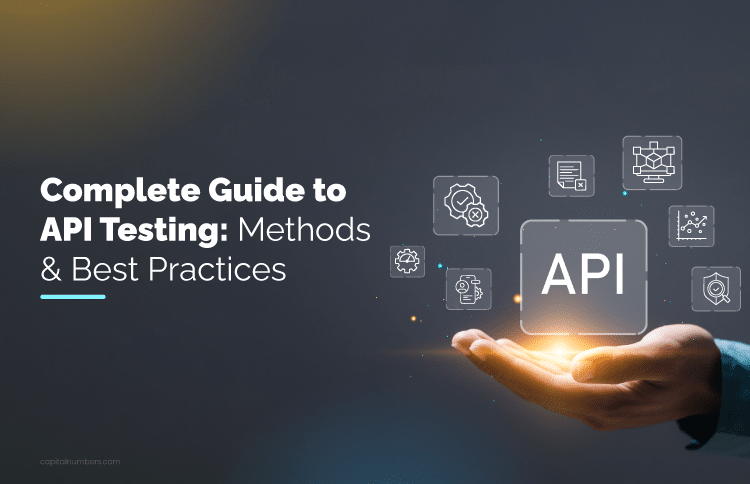10 Essential Skills to Look for When Hiring a Magento Developer
Table of Contents
Magento is a powerful and flexible e-commerce platform widely used by businesses to create and manage online stores. Its importance in e-commerce stems from its robust features, scalability, and customization options, making it a preferred choice for both small and large enterprises. A Magento developer plays a crucial role in building, customizing, and maintaining these platforms, ensuring they run smoothly and meet business needs.
This blog aims to help businesses identify the essential skills to look for when hiring a Magento developer. It will cover key technical and soft skills necessary for effective Magento development.
1. Proficiency in Magento Development
- Understanding Magento Architecture: Magento 2 architecture is designed for flexibility and scalability, featuring a modular approach that separates business logic from presentation. It is built on the Model-View-ViewModel (MVVM) pattern, which helps streamline development and enhance maintainability. Key components include modules, controllers, blocks, helpers, and themes. Understanding this structure is crucial for efficient code navigation, implementation, and troubleshooting, enabling developers to create robust and scalable e-commerce solutions.
- Customization and Extension Development: Customizing existing features and developing new extensions are vital skills for Magento developers. This involves modifying core functionalities to meet specific business requirements, such as altering product display layouts, customizing checkout processes, or integrating third-party services like payment gateways and shipping providers. Examples of common customizations include:
- Custom Themes: Designing unique storefronts to enhance user experience and reflect brand identity.
- Checkout Modifications: Simplifying the checkout process to reduce cart abandonment rates.
- Product Page Enhancements: Adding custom fields or modifying layouts to display additional product information or improve usability.
- Admin Panel Customizations: Creating tailored admin interfaces or dashboards for better store management.
Proficiency in these areas ensures that developers can tailor the Magento platform to deliver a seamless and engaging user experience, aligning with business goals.
2. Experience with PHP and MySQL
- Core Backend Technologies: Strong PHP skills are essential for Magento developers as the platform is built using PHP. Proficiency in PHP allows developers to create custom functionalities, manage code efficiently, and integrate seamlessly with other systems. MySQL, the relational database management system used by Magento, is crucial for storing and managing e-commerce data such as products, customers, and orders. Understanding MySQL helps developers design schemas, optimize queries, and maintain data integrity.
- Practical Experience: Examples of projects showcasing PHP and MySQL skills include:
- Custom Module Development: Creating new functionalities by writing PHP code and defining MySQL tables.
- Performance Optimization: Improving site performance through PHP tuning and MySQL query optimization.
- Third-Party Integration: Synchronizing data with external systems using PHP and MySQL.
- Custom Reporting Tools: Developing tools for business intelligence using advanced SQL and PHP.
- Migration Projects: Handling data transformations and migrations between Magento versions.
These projects demonstrate the essential backend skills required for effective Magento development.
3. Front-End Development Skills
- Proficiency in HTML, CSS, and JavaScript: Magento developers must have strong skills in HTML, CSS, and JavaScript to create engaging and interactive user interfaces. These skills are crucial for ensuring that the website is visually appealing and provides a seamless user experience. Additionally, knowledge of modern front-end frameworks like React and Angular enhances the ability to build dynamic and responsive applications, improving performance and maintainability.
- Responsive Design: Ensuring that a Magento website is mobile-friendly is vital, given the increasing use of mobile devices for online shopping. Developers should be adept at implementing responsive design techniques to ensure the site looks and functions well on various screen sizes. Utilizing frameworks like Bootstrap allows for efficient and consistent responsive design, enabling developers to create flexible layouts that provide an optimal user experience across all devices. This focus on responsive design helps maximize accessibility and user satisfaction.
4. Understanding of E-commerce SEO
Optimizing Magento sites for search engines is crucial for driving organic traffic and improving visibility. Developers need strong technical SEO skills to ensure proper indexing, fast loading times, and mobile-friendliness. Key SEO practices for e-commerce include optimizing product pages with relevant keywords, creating search-friendly URLs, and using schema markup to enhance search engine results. Proper implementation of these practices helps improve search engine rankings and attract more potential customers.
5. Knowledge of Version Control Systems
- Importance of Git: Git is essential for managing code changes and collaboration in development projects. It allows multiple developers to work on the same project simultaneously without conflicts.
- Benefits of Using Version Control: Using Git ensures code integrity, enables easy tracking of changes, and simplifies the process of reverting to previous versions if issues arise. It also facilitates continuous integration and deployment.
- Best Practices for Managing Code with Git: Adopting best practices, such as creating meaningful commit messages, using branching strategies (like GitFlow), and conducting regular code reviews, enhances collaboration and maintains a clean codebase.
6. Experience with Magento Performance Optimization
- Speed and Performance: Optimizing a Magento site’s speed and performance is crucial for enhancing user experience and conversion rates. Techniques for improving performance include enabling full-page caching, optimizing images, and minimizing JavaScript and CSS files. Utilizing Content Delivery Networks (CDNs) can also reduce load times by serving content from servers closest to the user. Database optimization, such as indexing and query tuning, further enhances performance.
- Examples of Performance Optimization Strategies:
- Enabling Varnish Cache: Speeds up page loading by caching content.
- Image Compression: Reduces file sizes without compromising quality.
- Code Minification: Removes unnecessary characters from CSS and JavaScript files to reduce load times.
- Scalability: Ensuring a Magento site can handle increased traffic and transactions is vital for growth. Techniques include implementing load balancers, optimizing server configurations, and using scalable hosting solutions. Employing asynchronous processing for background tasks and scaling database servers horizontally can also help manage higher loads. These strategies ensure that the site remains fast and reliable even during peak traffic periods, providing a consistent user experience and supporting business growth.
7. Familiarity with Security Best Practices
- Magento Security Features: Securing an e-commerce site is crucial to protect sensitive customer data and maintain trust. Common security threats include SQL injection, cross-site scripting (XSS), and brute force attacks. Mitigating these threats involves implementing security patches promptly and using secure coding practices.
- Implementation of Security Measures: Key security measures include enabling SSL certificates to encrypt data transmission, employing two-factor authentication (2FA) for an added layer of login security, and using web application firewalls (WAF) to block malicious traffic. Regular security audits and compliance with PCI-DSS standards further enhance site security, ensuring a safe shopping environment for customers.
8. Knowledge of Magento Extensions and Integrations
- Third-Party Integrations: Integrating with payment gateways, shipping providers, and other third-party services is essential for a fully functional e-commerce site. This ensures seamless transactions and enhances customer experience.
- Experience with Popular Magento Extensions: Developers should be familiar with widely-used extensions like PayPal, Stripe, and ShipStation, ensuring smooth integration and functionality.
- Customization of Extensions: A skilled Magento developer can modify and extend existing extensions to meet specific business requirements. This ability to customize ensures that the e-commerce platform can adapt to unique needs, providing tailored solutions that enhance functionality and improve overall site performance.
9. Problem-Solving and Troubleshooting Skills
- Debugging and Issue Resolution: Identifying and resolving issues quickly is vital to maintain site functionality and user satisfaction. Effective debugging tools and techniques include using Magento’s built-in logging, Xdebug for PHP, and browser developer tools for front-end issues.
- Real-World Examples: For instance, resolving a slow-loading site by pinpointing a poorly optimized SQL query, or fixing a broken checkout process by debugging JavaScript errors. Case studies highlight how timely problem-solving prevented revenue loss and improved user experience, demonstrating the developer’s ability to manage and resolve critical issues efficiently.
10. Strong Communication and Team Collaboration
- Soft Skills Importance: Effective communication with team members and stakeholders is crucial for the success of any project. It ensures that requirements are understood, progress is tracked, and issues are resolved promptly.
- Ability to Collaborate in a Team Environment: Collaboration skills help in integrating diverse inputs and maintaining a cohesive workflow.
- Project Management Tools: Familiarity with tools like Jira and Trello is essential for managing tasks, tracking progress, and maintaining transparency. These tools facilitate better organization, timely updates, and efficient project execution, ensuring that all team members are aligned and informed.
Conclusion
A well-rounded skill set ensures a Magento developer can build, optimize, and maintain robust e-commerce platforms. Prioritizing these skills in the hiring process will help businesses find capable developers who can contribute significantly to their success.
Looking to elevate your e-commerce platform with a skilled Magento developer? Our team of experts is equipped with all the essential skills to build, optimize, and maintain a robust and high-performing online store. Don’t miss out on the opportunity to enhance your business’s online presence. Hire a Magento developer today and take your e-commerce success to the next level! Contact us now to get started!















